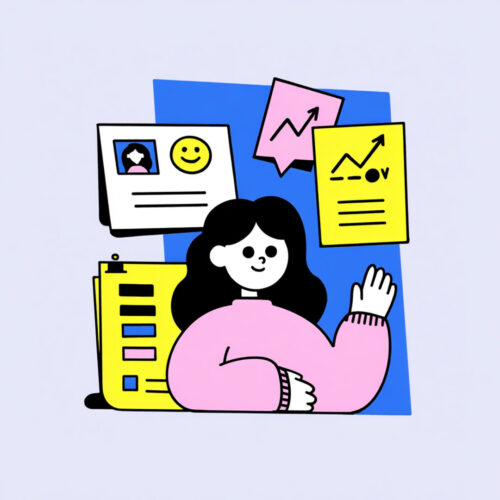Common Interview Questions: A Comprehensive Guide With 100 Examples

In today’s competitive job market, being prepared for common interview questions is essential. Employers frequently rely on a core set of inquiries to gauge your experience, problem-solving abilities, interpersonal skills, and cultural fit. While these questions may seem familiar, the way you respond can truly set you apart. In this guide, we’ll explore common interview questions, provide 100 examples categorized into key themes, and offer strategies for crafting impressive responses that highlight your value and readiness.
Recommended Podcast:
Why Preparing for Common Interview Questions Matters
Understanding why common interview questions are used helps you create more targeted answers. Being prepared reduces anxiety, increases relevance, and demonstrates professionalism. By aligning your responses with the employer’s expectations, you show that you can meet their needs. For additional insights on interview preparation, check out the Indeed Career Guide.
How to Use This Guide
We’ve grouped these 100 common interview questions into 10 categories. As you review each section, identify which questions apply most directly to your desired role. Consider what the interviewer wants to learn and use frameworks like the STAR method (Situation, Task, Action, Result) for structured storytelling. By practicing these common interview questions and refining your responses, you’ll enter the interview room with confidence, clarity, and authenticity.
Mastering Common Interview Questions About Your Background and Work History (10 Questions)
- Can you walk me through your resume?
- What inspired you to pursue this career path?
- Describe your most recent position and key duties.
- What’s your greatest professional achievement so far?
- Why did you leave your last job?
- Which skills from previous roles will help you succeed here?
- How has your education prepared you for this role?
- Share a project you’re proud of and explain why.
- Have you ever changed career paths? What prompted that decision?
- Which past experiences shaped your work ethic?
Tip: Highlight achievements that align with the new position’s requirements and use metrics to illustrate your impact.
Addressing Motivations and Future Plans (10 Questions)
- Why are you interested in this position?
- What attracted you to our company?
- Where do you see yourself in five years?
- What short-term and long-term goals have you set for your career?
- How does this role fit into your professional aspirations?
- Which aspects of our mission resonate with you the most?
- What motivates you to excel at work?
- Why do you want to work in this industry?
- If you had multiple offers, what factors would guide your decision?
- How will you continue to develop professionally?
Tip: Show genuine interest in the company and connect your goals to their values, reassuring employers that you’re a long-term fit.
Presenting Strengths and Handling Weaknesses (10 Questions)
- What are your greatest strengths?
- How would your colleagues describe you?
- What sets you apart from other candidates?
- Which skill do you excel at and how did you develop it?
- What is your biggest weakness?
- How have you improved upon a professional shortcoming?
- Describe a time you received critical feedback and how you handled it.
- Which skill are you currently working to enhance?
- How do you approach tasks outside your comfort zone?
- How do your personal qualities match this role’s demands?
Tip: Be authentic. For strengths, choose qualities relevant to the job. For weaknesses, show that you’re proactive about improvement.
Excelling in Team Collaboration Scenarios (10 Questions)
- Describe a time you worked successfully in a team.
- How do you resolve conflicts with colleagues?
- Tell me about a situation where compromise led to success.
- How do you ensure everyone’s input is considered in a group project?
- How have you supported a struggling teammate?
- What steps do you take to build rapport with new team members?
- Describe collaborating with a diverse group of colleagues.
- Which role do you typically play in team settings?
- How do you handle differing opinions within a team?
- Have you ever helped restore harmony after tension emerged?
Tip: Emphasize empathy, active listening, and adaptability. Show that you prioritize shared goals over personal preferences.
Approaching Problem-Solving and Critical Reasoning Queries (10 Questions)
- Describe a complex problem you solved and your approach.
- How do you handle unexpected setbacks?
- Walk me through how you tackle tough tasks.
- Tell me about using data to inform a key decision.
- What do you do when information is limited?
- How do you prioritize tasks with multiple deadlines?
- Have you ever taken a professional risk? What did you learn?
- How do you break large projects into manageable parts?
- When have you improved a workflow or process?
- How do you measure success for the solutions you implement?
Tip: Use concrete examples, detail your reasoning steps, and highlight positive outcomes or insights gained.
Demonstrating Leadership and Guidance Capabilities (10 Questions)
- Describe a time you led a team or project.
- How do you inspire others to perform their best?
- What’s your approach to delegating tasks effectively?
- When have you mentored or coached someone?
- How do you address underperformance on a team you lead?
- Describe managing a high-pressure situation successfully.
- How do you set goals and track team progress?
- Which leadership style do you find most effective, and why?
- When have you taken initiative without prompting?
- How do you celebrate team wins and recognize achievements?
Tip: Highlight empathy, communication, and the ability to motivate and empower rather than commanding.
Enhancing Communication and Interpersonal Interactions (10 Questions)
- How do you adapt your communication style for different audiences?
- Tell me about resolving a misunderstanding at work.
- How do you give and receive constructive feedback?
- Describe delivering a difficult message professionally.
- How do you ensure clarity in written communications?
- Give an example of a presentation you prepared.
- How do you handle upset clients or customers?
- When has effective communication improved outcomes?
- How do you maintain strong communication in remote teams?
- How do you seek clarification when instructions are unclear?
Tip: Stress clarity, empathy, and the willingness to listen as much as you speak.
Aligning With Company Culture and Values (10 Questions)
- Which aspects of our culture appeal to you?
- How do you handle disagreements with company policies?
- Describe adapting successfully to a new work culture.
- How do you remain professional during challenging times?
- Share a time you upheld your ethics under pressure.
- How do you manage stress and maintain balance?
- Which professional values guide your decisions?
- How do you stay true to your principles in tough situations?
- How would you address a decision you strongly disagreed with?
- How do you promote respect and inclusion among colleagues?
Tip: Demonstrate integrity, respect, and a genuine connection to the company’s values.
Highlighting Technical and Role-Specific Abilities (10 Questions)
- Which tools or software are you most proficient in?
- Explain a complex technical concept simply.
- Describe overcoming a significant technical challenge.
- How do you stay updated on industry tools and trends?
- Walk me through solving a technical problem step-by-step.
- How do you handle sudden technical issues or downtime?
- Share a project where you leveraged specific technologies.
- How quickly can you learn new tools or platforms?
- Describe improving a technical process or system.
- How do you ensure quality and accuracy in technical work?
Tip: Emphasize adaptability, continuous learning, and results-backed technical accomplishments.
Navigating Closing and Scenario-Based Inquiries (10 Questions)
- Do you have any questions for us?
- How would you handle a request from a manager you disagreed with?
- If starting a project from scratch, how would you begin?
- How do you react to shifting priorities or limited resources?
- Imagine you’ve been here six months—what would you have achieved?
- How would you approach a strategic disagreement with a supervisor?
- If priorities changed mid-project, how would you adapt?
- How do you address a significant mistake at work?
- How do you balance competing stakeholder demands?
- Why should we hire you over other candidates?
Tip: Show adaptability, calmness, and a solution-focused mindset when facing unpredictable scenarios.

Why I Must Hire You? Best Answers, Examples & Templates
If you’re preparing for interviews, you will hear some version of “Why I must hire you?” or “Why should we hire you?”. Hiring managers want a concise, confident…
Final Tips
- Practice regularly: Rehearse answers to key common interview questions and refine delivery.
- Be genuine: Authenticity resonates more than memorized replies.
- Include specifics: Use metrics and examples to substantiate claims.
- Stay positive: Frame challenges as growth opportunities.
- Research the company: Tailor responses to reflect their culture, values, and goals for more targeted answers to common interview questions.
Conclusion
By placing common interview questions at the forefront of your preparation, you transform uncertainty into confidence. Reviewing these 100 examples, perfecting your responses, and focusing on authenticity ensures you stand out. Whether highlighting past achievements, expressing aspirations, or showing how you adapt and collaborate, mastering common interview questions moves you closer to securing the job you genuinely deserve.
Rate this article
7 people rated this article


Comments